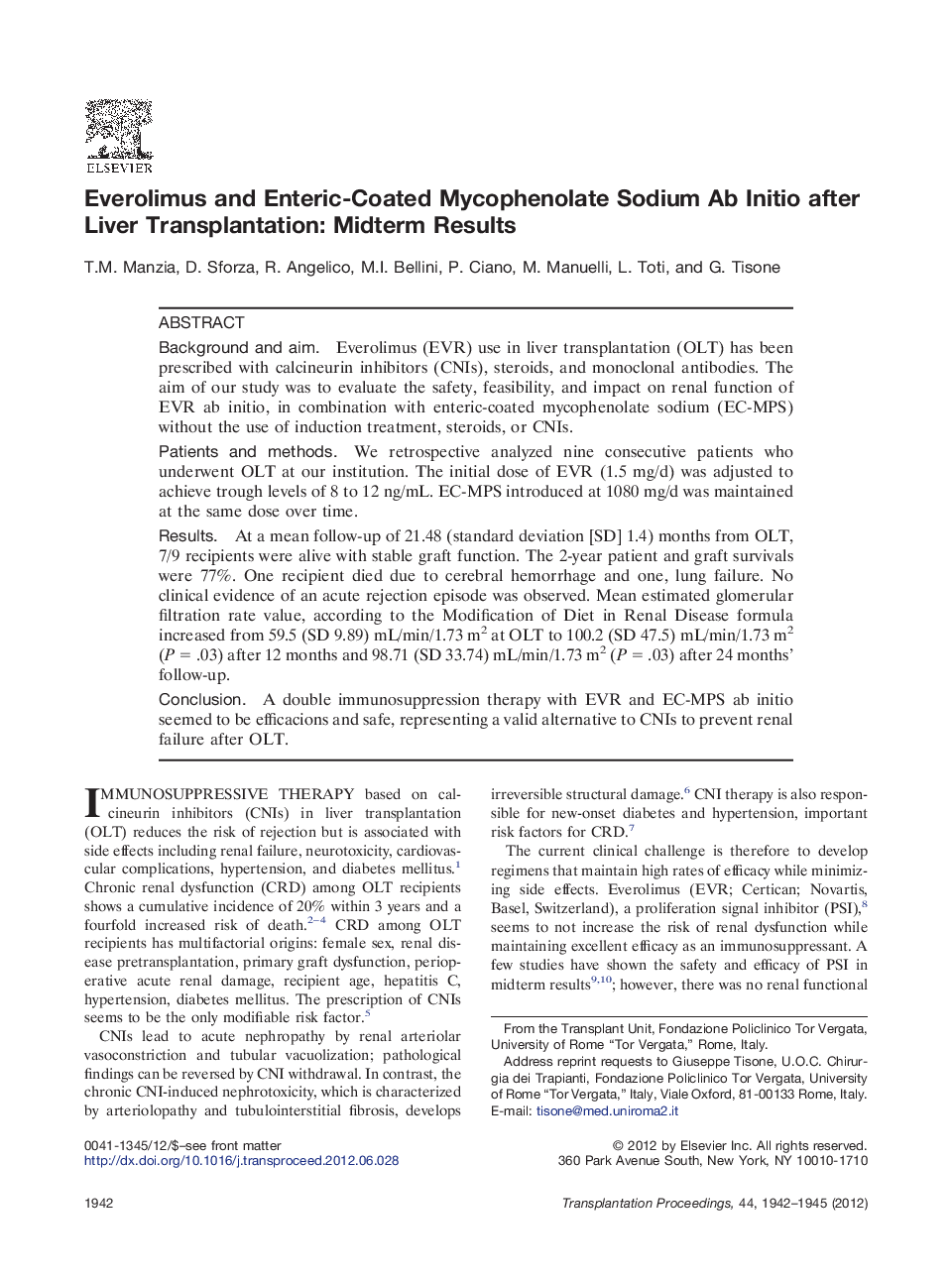| Article ID | Journal | Published Year | Pages | File Type |
|---|---|---|---|---|
| 6248244 | Transplantation Proceedings | 2012 | 4 Pages |
Background and aimEverolimus (EVR) use in liver transplantation (OLT) has been prescribed with calcineurin inhibitors (CNIs), steroids, and monoclonal antibodies. The aim of our study was to evaluate the safety, feasibility, and impact on renal function of EVR ab initio, in combination with enteric-coated mycophenolate sodium (EC-MPS) without the use of induction treatment, steroids, or CNIs.Patients and methodsWe retrospective analyzed nine consecutive patients who underwent OLT at our institution. The initial dose of EVR (1.5 mg/d) was adjusted to achieve trough levels of 8 to 12 ng/mL. EC-MPS introduced at 1080 mg/d was maintained at the same dose over time.ResultsAt a mean follow-up of 21.48 (standard deviation [SD] 1.4) months from OLT, 7/9 recipients were alive with stable graft function. The 2-year patient and graft survivals were 77%. One recipient died due to cerebral hemorrhage and one, lung failure. No clinical evidence of an acute rejection episode was observed. Mean estimated glomerular filtration rate value, according to the Modification of Diet in Renal Disease formula increased from 59.5 (SD 9.89) mL/min/1.73 m2 at OLT to 100.2 (SD 47.5) mL/min/1.73 m2 (P = .03) after 12 months and 98.71 (SD 33.74) mL/min/1.73 m2 (P = .03) after 24 months' follow-up.ConclusionA double immunosuppression therapy with EVR and EC-MPS ab initio seemed to be efficacions and safe, representing a valid alternative to CNIs to prevent renal failure after OLT.
